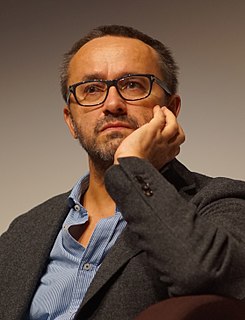A Quote by Ralph Nader
The clinical definition of "fascism" is when private concentrated economic power takes government away from the people, turns government into a guarantor, a subsidizer, a covering of corporate power.
Related Quotes
Church, the spiritual power, and the executive power are working today united in a system that confronts people. This alliance or cooperation between the spiritual power and the executive power, between the church and the government, unfortunately takes away the Church's basic mission. It takes away their right to speak on moral or ethical subjects.
Our Founding Fathers well understood that concentrated power is the enemy of liberty and the rights of man. They knew that the American experiment in individual liberty, free enterprise and republican self-government could succeed only if power were widely distributed. And since in any society social and political power flow from economic power, they saw that wealth and property would have to be widely distributed among the people of the country. The truth of this insight is immediately apparent.
The U.S. government doesn't build your computers, nor do you fly aboard a U.S. government owned and operated airline. Private industry routinely takes technologies pioneered by the government and turns them into cheap, reliable and robust industries. This has happened in aviation, air mail, computers, and the Internet.
A constitution is not the act of a government, but of a people constituting a government; and government without a constitution is power without a right. All power exercised over a nation, must have some beginning. It must be either delegated, or assumed. There are not other sources. All delegated power is trust, and all assumed power is usurpation. Time does not alter the nature and quality of either.
The difference between [socialism and fascism] is superficial and purely formal, but it is significant psychologically: it brings the authoritarian nature of a planned economy crudely into the open. The main characteristic of socialism (and of communism) is public ownership of the means of production, and, therefore, the abolition of private property. The right to property is the right of use and disposal. Under fascism, men retain the semblance or pretense of private property, but the government holds total power over its use and disposal.
































